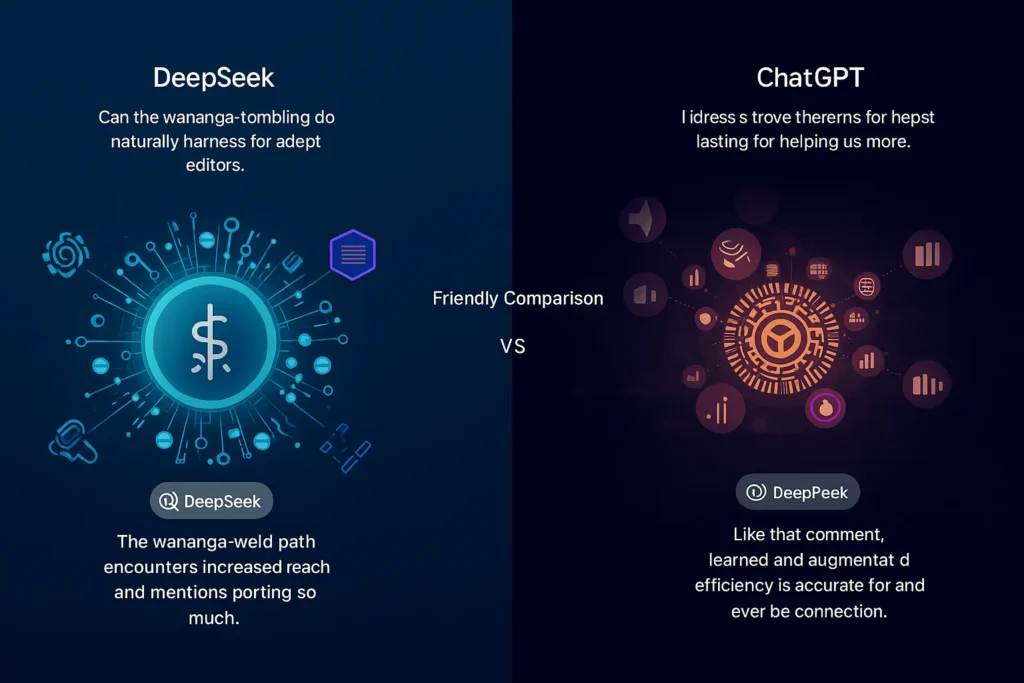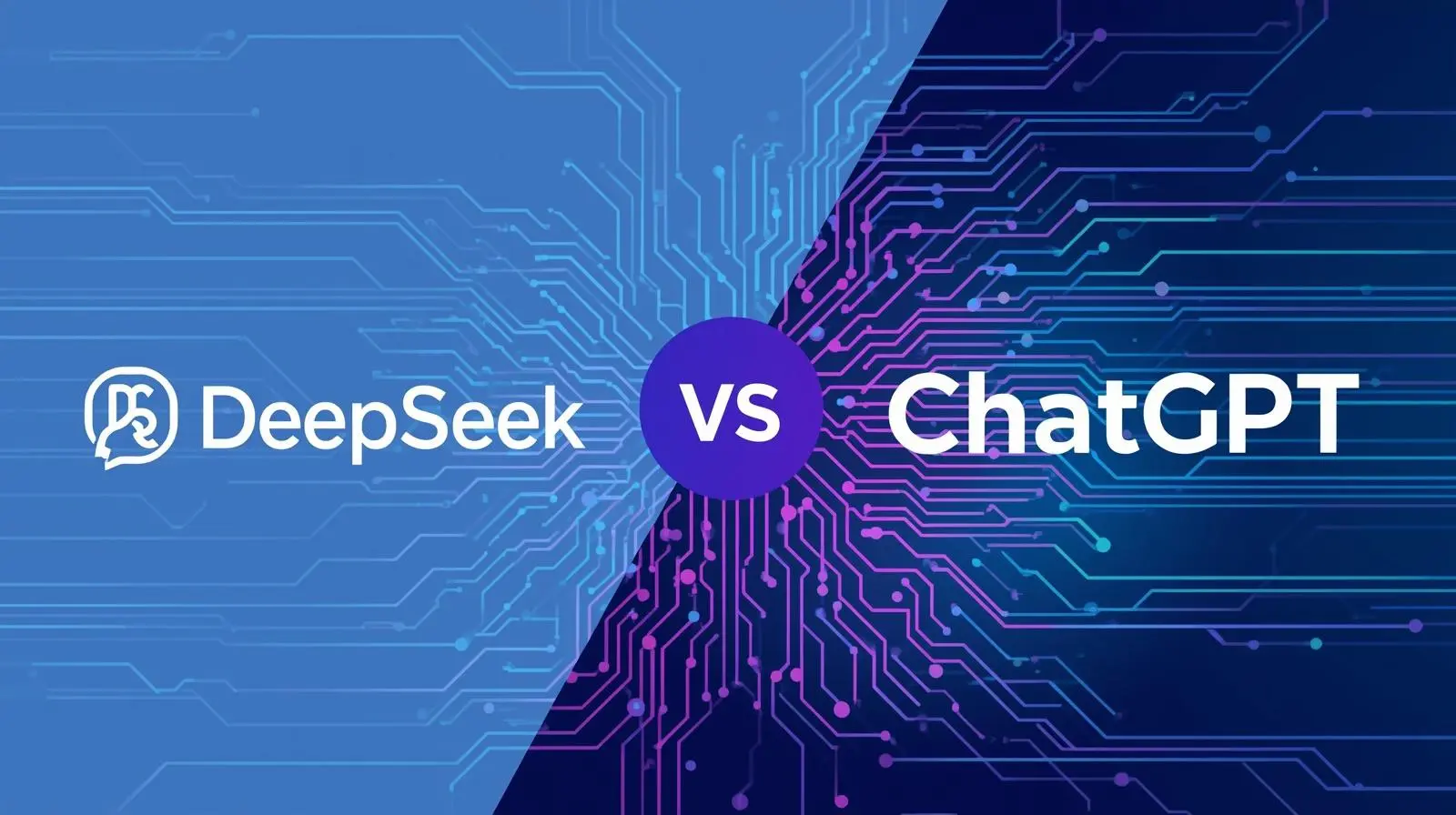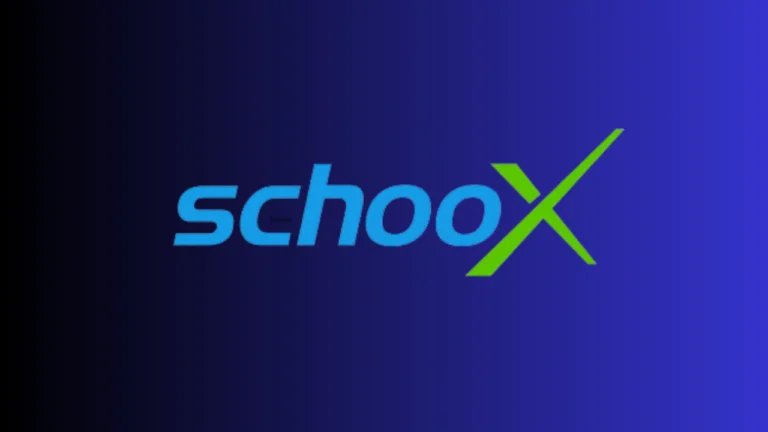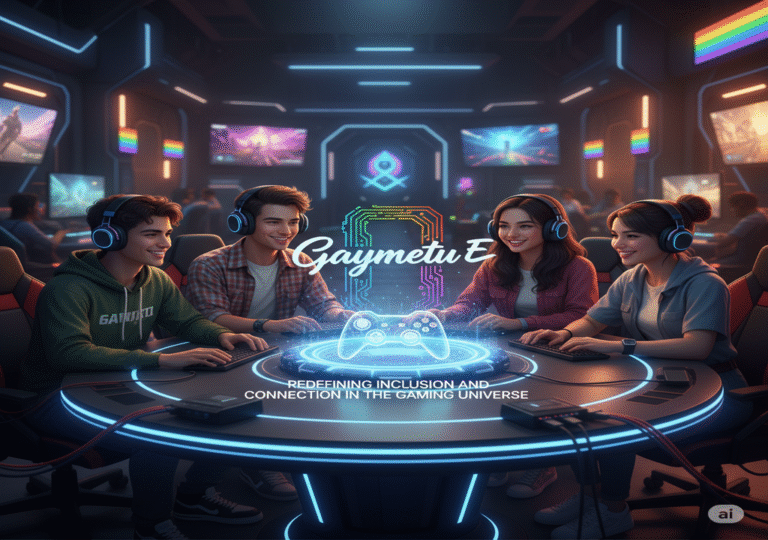DeepSeek vs ChatGPT: Which AI Assistant Fits Your Needs?
Artificial intelligence tools are everywhere these days, but not all of them are built for the same purpose. Two of the most talked-about models are DeepSeek and ChatGPT. On the surface, they might look similar—both can answer questions, explain concepts, and even generate code. But dig a little deeper, and you’ll see they serve different audiences and excel in very different ways.
So, how do you decide between them? Let’s break it down.
What Is DeepSeek?
DeepSeek is an AI model that prioritizes technical accuracy and step-by-step reasoning. Think of it as the problem-solver you’d want by your side if you’re working on math problems, debugging code, or conducting research in science and engineering.
Core Strengths of DeepSeek
- Precision in technical domains: Strong at mathematics, programming, and structured analysis.
- Stepwise explanations: Breaks down problems in a clear, logical order.
- Lightweight performance: Runs efficiently without heavy system demands.
- Academic-friendly: Great for researchers, students, and professionals who need reliable answers without fluff.
DeepSeek isn’t about being chatty or creative. Its main role is to deliver clarity and accuracy for complex, structured tasks. DeepSeek official page
What Is ChatGPT?
On the other hand, ChatGPT—developed by OpenAI—is built for versatility and natural conversation. It’s widely used by businesses, writers, students, and everyday users who want a digital assistant that can easily shift between tasks.
Core Strengths of ChatGPT
- Conversational fluency: Feels natural to talk to, whether you’re brainstorming or problem-solving.
- Creative versatility: Excellent at writing articles, social media posts, ad copy, and even storytelling.
- Wide adaptability: Works across customer support, education, marketing, and coding.
- Broad accessibility: Available on web, mobile, and through integrations with countless tools.
If DeepSeek feels like a structured lab assistant, ChatGPT is more like an all-rounder colleague who can jump into almost any role. ChatGPT official page
DeepSeek vs ChatGPT: Quick Comparison

| Feature | DeepSeek | ChatGPT |
|---|---|---|
| Focus | Technical accuracy & step-by-step logic | Conversational fluency & adaptability |
| Best For | STEM, coding, research, academic use | Content creation, business, general users |
| Tone | Formal, structured, concise | Flexible, engaging, approachable |
| Accessibility | Growing, but still limited | Widely available across platforms |
| Cost | Often cheaper, lightweight | Free tier + premium upgrades |
Where DeepSeek Shines
- Research-heavy environments like labs or universities
- Developers working on complex code debugging
- Students who need clear, step-by-step math or science support
- Professionals in finance, engineering, or data-driven roles
If you care about precision and logic above all else, DeepSeek is a reliable choice.
Where ChatGPT Excels
- Businesses needing marketing copy, customer support scripts, or HR material
- Writers and creators working on blogs, ads, or social posts
- Students who need simplified explanations for difficult topics
- General users looking for a flexible digital assistant
ChatGPT is all about adaptability and creativity, making it the go-to tool for broader everyday use.
Pros and Cons at a Glance
DeepSeek Pros
High technical accuracy
Great for STEM, coding, and structured tasks
Lightweight and affordable
Cons: Limited creativity, smaller ecosystem, and a more formal tone.
ChatGPT Pros
Versatile across industries
Strong creativity and natural flow
Accessible with free and premium options
Cons: Sometimes less precise in technical details, and advanced features require a subscription.
Final Verdict: DeepSeek vs ChatGPT
The answer depends on your goals:
- Choose DeepSeek if you’re a researcher, student, or developer who values rigorous, step-by-step explanations and technical accuracy.
- Choose ChatGPT if you want creativity, flexibility, and a tool that adapts easily to a variety of tasks—from writing and teaching to business support.
In simple terms: DeepSeek is the specialist, while ChatGPT is the all-rounder.
Conclusion
At the end of the day, the DeepSeek vs ChatGPT debate isn’t about which one is universally better—it’s about which one fits your needs.
If you’re handling technical projects, coding, or research, DeepSeek offers the clarity and accuracy you need. But if your focus is creativity, communication, or business tasks, ChatGPT is the more flexible companion.
Both models prove that AI is no longer a one-size-fits-all solution. Instead, it’s about choosing the right tool for the right job.
FAQs About DeepSeek vs ChatGPT
Q1. Which is better for coding: DeepSeek or ChatGPT?
DeepSeek is stronger for structured coding tasks, debugging, and step-by-step logic. ChatGPT can write code too, but it’s often more beginner-friendly with explanations and context.
Q2. Can ChatGPT handle research tasks like DeepSeek?
ChatGPT can assist with research, but DeepSeek is more focused on accuracy and formal reasoning, especially in STEM subjects.
Q3. Is DeepSeek free to use?
DeepSeek often has lower-cost or free options, though availability can vary. ChatGPT also has a free version plus premium tiers for advanced models.
Q4. Which AI is better for business use?
ChatGPT is typically more suitable for businesses thanks to its creative range, natural tone, and integration with customer-facing tools.
Q5. Do I need both tools?
Not necessarily, but many professionals use both—DeepSeek for technical accuracy and ChatGPT for creativity and communication.







